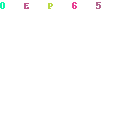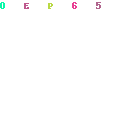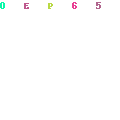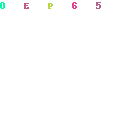THE TOASMASTERS CHALLENGE AT
THE #BABISHAI2016 POETRY FESTIVAL
THURSDAY 25 AUGUST 5:30PM AT
MARIA’S PLACE NTINDA ENTRY FEE IS 5,000/-
The Toastmasters Challenge is an intellectual battle of words between
Kampala Toastmasters and poets. Poets in Kampala have created a positive shift
in the creative industry. Through their inventiveness, Kampala flourishes with
rich verse. Kampala Toastmasters Club is part of an international organization
that trains in public speaking and effective communication. They meet every
last Tuesday and every second Friday of the month at Protea Hotel in Kampala.
 |
| Tom Jalio,astmasters challenge judge |
Meet the contestants:-
Moderator: Phillip Matogo
Poets
1.
L-Ness Lydia (Kenya)
2.
Winnie Apio (Uganda)
3.
Fahima Kimbugwe
(Uganda)
4.
Mark Gordon Slam Poet (Uganda)
5.
Jordey Lonyo (Uganda)
Kampala Toastmasters
1.
Connie Nshemereirwe (Uganda)
2.
Abubakar Matanda (Uganda
3.
Davis Tashobya (Uganda)
4.
Stephano Kiyemba (Uganda)
5.
Paul Kavuma (Uganda)
Meet the Judges
Lekpele Nyamalon (Liberia)
Doreen Baingana (Uganda)
Tom Jalio (Kenya)
THE RULES TO THE GAME
ROUND ONE is a knock-out round
where two toastmasters and two poets will leave
Each of the ten contestants has between 3-5 minutes to present their
speech or poem on any topic of their choice. Their presentations will be timed
and any piece below 2 and a half minutes or above 5 and a half minutes, will be
immediately disqualified.
There will be time cards.
Green time card will flag at 3 minutes
Yellow time card will flag at 4 minutes
Red time card will flag at 5 minutes
Judging Criteria:
I.
Relevance of message
II.
Eloquence and Enunciation
III.
Creativity
IV.
Connection with audience
V.
The oomph factor/originality
ROUND TWO is also a knock-out
round where two toastmasters and two poets will also leave
In round two, each of the 6 contestants has between 3-5 minutes to
present their speech or poem on any topic of their choice. This time they are
permitted to use a prop of their choice to enhance their presentation. Their
presentations will be timed and any piece below 2 and a half minutes or above 5
and a half minutes, will be immediately disqualified.
There will be time cards.
Green time card will flag at 3 minutes
Yellow time card will flag at 4 minutes
Red time card will flag at 5 minutes
Criteria:
I.
Relevance of message
II.
Eloquence and Enunciation
III.
Appropriate and creative usage of prop
IV.
Connection with audience
V.
The oomph factor/originality
FINAL ROUND THREE is AUDIENCE
SELECTION.
In round three, each of the 2 final contestants has between 3-5
minutes to present their speech or poem on any topic selected by the audience.
This time the two finalists will leave the area while the audience selects a
topic. The finalists will then pick a random number in a hat to decide who goes
first. Their presentations must be based on the given topic chosen by the
audience and they will have minimal time to prepare. They will be timed and any
piece below 2 and a half minutes or above 5 and a half minutes, will be
immediately disqualified.
There will be time cards.
Green time card will flag at 3 minutes
Yellow time card will flag at 4 minutes
Red time card will flag at 5 minutes
The audience will then select
the winner.
The winner will receive a card to the award-giving dinner on Friday 26 August at Fang Fang
Restaurant and a book of their choice.
Our festival programme is available on our website
www.babishainiwe.com and we can be
reached via email at babishainiwe@babishainiwe.com.
























